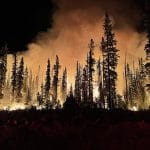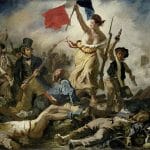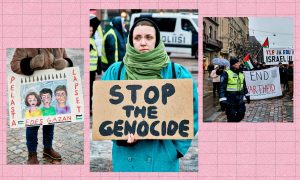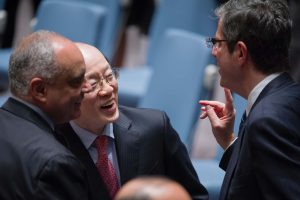Few terms in political science hold as complex a definition as “Nation”. As UN-aligned launches its new volume of The Gordian, exploring Nation Building, it becomes crucial to establish a clear understanding of the term and its multilayered complexities.
What is a nation?
A nation is defined as “a group of people who share a history, traditions, culture and, often, language – even if the group does not have a country of its own”, writes National Geographic.
This definition crucially highlights that a nation does not mandate all its citizens to reside within the same territory. Over the last half century, ‘nation’ has become a synonym for a state – a defined territory with hard borders. However, buried within the definition of nation is a clash between the concrete and the abstract.
While a nation contains tangible and concrete markers of identity such as history and language, it also contains fluid and intangible markers such as culture and tradition. This complexity of definition is further complicated by the absence of clear borders to help confine and align such abstract aspects of identity with a specific geographical territory.
In many ways, the term ‘nation’, highlights human nature’s need for belonging and identity. While this concept frequently intertwines with the state, resulting in the term ‘nation-state’, it is not solely confined to it.
In his 1983 book, political scientist Benedict Andersen, described nations as “imagined communities”. He argues that nations are “imagined because the members of even the smallest nation will never know most of their fellow-members, meet them, or even hear of them. Yet, in the minds of each lives the image of their communion”.
What is nationalism?
This, of course, leads to the need for a separate definition of nationalism. Drawing from Anderson’s work, if we accept that nations are imagined communities, nationalism therefore explains why and how these imagined communities are created.
As per Webster’s Dictionary, nationalism is defined as “a sense of national consciousness exalting one nation above all others and placing primary emphasis on promotion of its culture and interests”. This dynamic force, as history has shown, can stir nations and shape their futures.
In the last century, however, nationalism has developed a negative connotation, often associated with far-right political movements and major global conflict.
Nevertheless, some contend that without the motivational force of nationalism, specifically national competition, many technological advances, exploration and social progress would have not been possible.
While both views present compelling evidence, we offer an alternative perspective in this new volume. Rather than viewing nationalism as a force for good or bad, we propose perceiving it in a neutral light as a powerful emotion capable of captivating an entire group of people, and ultimately, a key factor in nation building.
How is a nation built?
With these two definitions firmly established, we can now turn our focus to Nation Building. While the terms nations and nationalism have taken centre stage in the past century, UN-aligned predict that the mechanisms by which nations are formed will be instrumental in moulding the next century and a better United Nations.
Nation building is both a simple and deeply complex process. Fundamentally, nation building means creating a sense of unity, belonging and national identity amongst a group of diverse people. Essentially, it is about the many becoming one nation. However, this definition does not begin to cover the myriad of challenges that comes with this process.
Nation building stirs debates of language, histories, conflict, cultures and religion. It raises profound questions over state borders and territories, constitutional dispensation and governments. In addition, it requires a formulation of a shared identity and of shared values agreed upon internally, and externally displayed through international relations.
Examples of nation building can be found on every continent. Canada, since its birth in 1867, has been in a perpetual state of nation building, aiming to build a national identity separate from its British and French colonial past and the looming shadow of the USA.
Simultaneously, Canada has been forced to look at its internal identity and the relationships between indigenous peoples and colonial descendants. For this reason, Canada’s version of nation building has been a process of accepting and celebrating its diversity, creating a national “mosaic” of identity.
In post-apartheid South Africa, on the other hand, the process of nation building has been one of unification, reconciliation and equality. Throughout South Africa’s post-apartheid history, the ANC-led government has undertaken a distinct nation-building programme in pursuit of “a truly united, democratic and prosperous South Africa”.
Similar to Canada, the South African government introduced the “rainbow nation” concept, focusing on what Andrew Stinson, refers to as “interculturalism”. This process is one that focuses on recognising commonalities while reducing tensions and promoting the formation of social partnerships amongst different cultural groups.
From these two examples, it is clear that nation building is far from a universal, one-size-fits-all process. Instead, it requires careful tailoring to a country’s history, culture, national values, language and religion. Despite both being former British colonies, the nation building process of Canada and South Africa have been remarkably different, facing different distinct challenges.
These divergent patterns undoubtedly remain true when examining other countries, ranging from the rise of China to the creation of a new country in South Sudan. If nation building varies so greatly worldwide, is there any common ground? Can there be a universal definition of nation building?
The answer lies in the objective of nation building. Harris Mylonas, professor of political science at George Washington University, asserts that nation building aims to unify the people within the state to ensure long-term political stability and viability.
Ultimately, nation building is a process defined by its outcomes. The effectiveness of nation building could be judged by whether it fosters a healthier sense of national identity and whether it garners internal and external recognition, sovereignty and credibility.
The desire to unify a people, bolster stability and power, and work towards the future prosperity of a country is a common thread binding diverse nations like South Africa, Canada, China and South Sudan. It is the inherent desire for improvement that drives the process of nation building.
What does it mean to be part of a nation?
With this foundation, we set the stage for the next few issues of The Gordian, where we aim to delve into this and many related essential questions. Our focus will be on examining the trends, challenges and opportunities of nation building, alongside the people, movements and leaders who are relentlessly propelling it forward.
And as you read, we urge you to consider what it means to be part of a nation. Consider your own individual place, your people’s place and your region’s place in the nation building process.
Think of what nation building means for international organisations such as the United Nations. And finally, consider your own country and what changes you would like to see through the process of nation building.
It is not just about understanding, it is about igniting the first flame for a truly cohesive and effective United Nations.




















